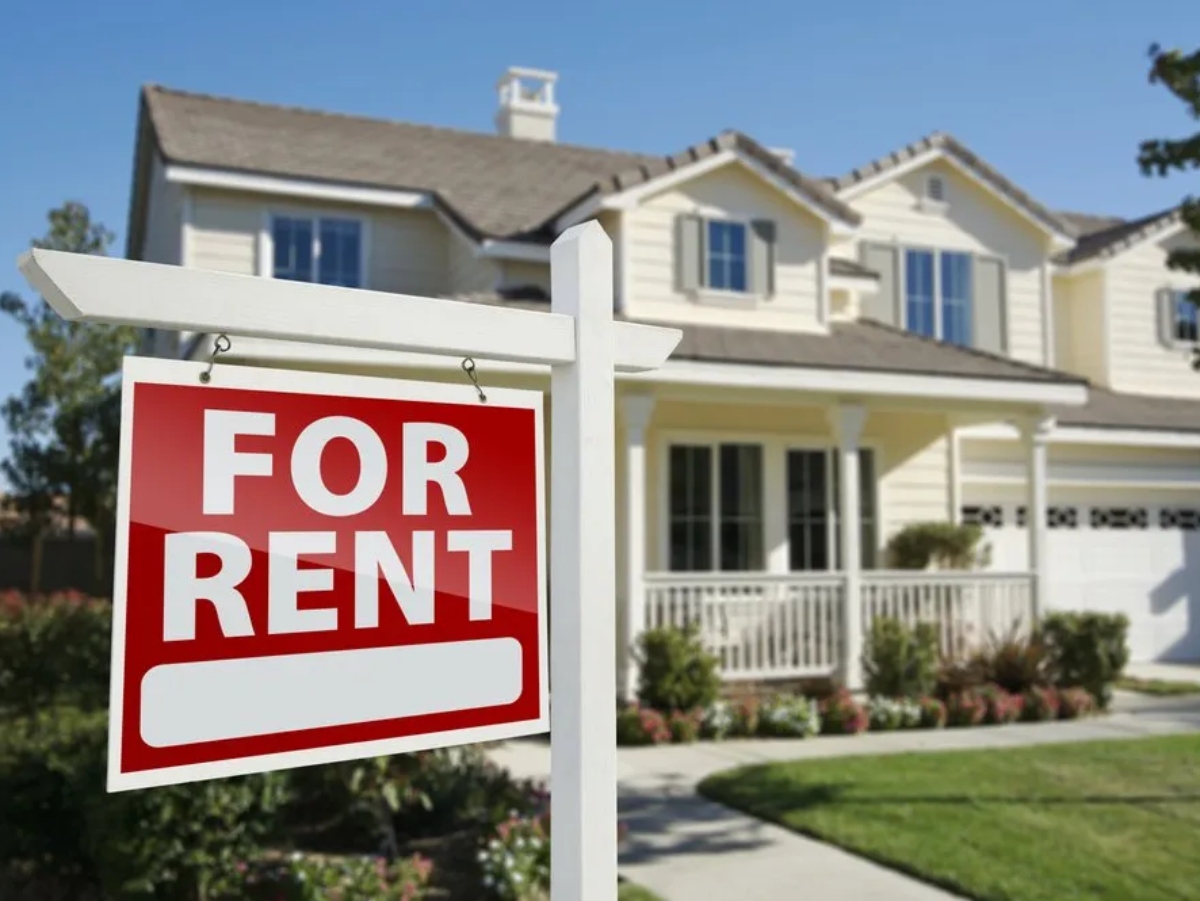Unlike auto insurance coverage which is legally required in most states, renters insurance is usually optional. That means renters get to choose whether to buy it or not. But what if you move to a property and the landlord asks you to get it? Can a landlord require renters insurance? Knowing what is expected of you as a renter makes your relationship with your landlord easy. Below, we will cover what you need to know about renters insurance and if a landlord can demand it.
What Is Renters Insurance?
Renters insurance is a form of home insurance, but it’s only limited to renters. The main difference between this policy and homeowners insurance is that the former doesn’t insure the building or structure. It’s the responsibility of the landlord to insure the structure. Anyone renting a home, condo, apartment, or any other living space can purchase this type of coverage.

What Does Renters Insurance Cover?
Renter insurance can protect you in four ways. Let’s take a look at the different coverages.
- Personal property damage: If your home is exposed to a covered risk like theft or fire, you won’t have to worry about the resulting expenses. The coverage will pay the cost to replace or repair the damaged property, up to your policy’s limits.
- Personal liability: If a visitor is hurt or their property is damaged, and you’re found liable, the policy will take care of the liability costs. This includes legal fees should the issue go to court.
- Additional living expenses: If the home you’re renting becomes uninhabitable after exposure to a covered risk, the policy will cover the additional living expenses you incur. This includes transport, food, and accommodation. This type of coverage is also known as loss of use coverage.
- Medical payments: This policy is handy when a guest is hurt around your property. It will cover the resulting medical expenses.
Can a Landlord Require Renters Insurance?
The simple answer is that landlords may require renters insurance. Most will highlight that in the lease agreement. If a landlord didn’t require it initially, they can add it when you’re renewing your lease or through a lease amendment.
Why Would a Landlord Require Renters Insurance?
There are several reasons why a landlord will decide to include mandatory renters insurance in the lease. Some of those reasons are explained below.
Renters Insurance Covers Damages Associated With Liability Claims
Usually, a landlord can be held liable for any injuries sustained within their property. A renters insurance policy removes that responsibility from the landlord by taking care of the resulting expenses. That is why certain landlords will insist you get renters insurance.

Makes it Easy to Accept Pets
Americans love pets. Most households have some type of pet, with dogs and cats being the most popular. However, some landlords worry about the damage pets can cause and the potential liability that may fall on them. Renters insurance allows the landlord to not limit their property only to families without pets. If you have a pet, particularly a dog, you may want to check on breed restrictions that apply to you when buying renters insurance. Some dogs are not covered because insurance companies consider them risky.
Renters Insurance Offers Protection Against Damages Caused by Party Damage
While a landlord can prohibit large parties on the premises, they can’t prevent small gatherings or get-togethers. In case of a mishap that results in property damage or injuries, renters insurance will cover the resulting costs.
Renters Insurances Offers Protection Against Tenant Negligence
Tenant negligence occurs in many ways. For instance, water damage can occur because of an overflowing tub, and burning food can lead to a fire. When such negligence leads to property damage, renters insurance can cover the resulting expenses, protecting the landlord’s finances.
Protects Landlords from Having to Pay for Accommodation
If a tenant’s house is damaged and undergoing repairs, the landlord may be forced to cover temporary accommodations until the house is ready. The tenant having renters insurance means the landlord’s finances are protected from these costs.
Helps the Landlord Filter Out Responsible Tenants
All landlords want good tenants who will pay their rent on time. If an applicant claims they can’t pay renters insurance, they likely don’t have a good credit score. If a prospective tenant can’t afford renters insurance, landlords are risking their property. Such a tenant may not pay the rent in full or on time. If a landlord comes across a landlord that can’t manage this extra cost, yet it’s for their benefit, the landlord will do well to pursue other tenants.

How Much Renters Insurance Do I Need?
Now that we have answered the question, can a landlord require renters insurance, you’re probably wondering how much renters insurance you’ll need. Look at the property around your home. This includes electronics, clothing, appliances, furniture, jewelry, and gadgets. How much money would it cost to replace all these items? Create an inventory while also looking at what renters insurance covers. This will help you better understand your insurance needs.
After that, compare various insurance quotes and talk to an agent. Understand that deductibles, coverage limits, and the type of coverage you get will influence how much you pay for your policy. An insurance agent can help you understand all these things and assist you in choosing the right coverage.
Should I Get Renters Insurance if I Don’t Own Much
Most people assume that renters insurance is only for people with a lot of property. But that notion couldn’t be further from the truth. You may think you own a few items until you’re exposed to a windstorm or your property is damaged. When you start replacing your property, you’ll realize the cost is high.
Renters insurance takes this worry from your plate. And once you add up the cost of your property, you’ll see they are valuable, and renters insurance is a great safety net. At the end of the day, whether your landlord requires renters insurance or doesn’t, it’s still good to get it. It will give you peace of mind knowing that you’re covered in case the unexpected happens.
Can Landlords Get Renters Insurance on Behalf of Their Tenants and Then Charge Them?
A landlord can purchase renters insurance for you, then charge you. This works the same way an employer can buy life insurance for you, then deduct it from your salary. The policy will legally be under your name and only cover personal liability and personal property. However, the landlord can also be included as a covered party regarding liability claims. That means they will be notified of any changes to your policy.
Certain property managers and landlords can also negotiate or partner with insurance companies to provide renters insurance at a discount. This option makes it easy for tenants to purchase coverage when renting a property.
What Can a Landlord Do if I Refuse to Get or Maintain Renters Insurance?
If your lease clearly states you require renters insurance, but you choose not to get it or maintain it, you violate the lease. Usually, landlords will require their tenants to show evidence that they have renewed their policy every year. The landlord will take action depending on your local laws. Most landlords, especially in multifamily units, will remind tenants to renew their policies. They also advise tenants that getting renters insurance is for their benefit as well.
If, as a tenant, you don’t heed this requirement, the landlord can give you an eviction notice. The notice will claim you either comply with the rules or move out. If you refuse to, the landlord can start eviction proceedings as allowed by the law.

Doesn’t Landlord Insurance Offer Enough Protection?
Landlords carry insurance. That is why most tenants are always wondering, can a landlord require renters insurance? After all, if the landlord has insurance, that means the property you’re renting is covered. But that coverage doesn’t apply to your items. That policy covers things like damage to the building or visitors getting injured in the common areas.
Your interests and those of the landlords differ. For instance, if your visitor is injured in a common area like the stairs while coming to your home, your renters insurance doesn’t apply here. If the stairs were damaged and resulted in those injuries, then it’s the landlord’s responsibility to cover those medical costs.
Also, some policies will cover the landlord’s personal property, even if it’s in your home. For instance, if the landlord had installed appliances such as a dryer or washer and they get damaged, their policy will cover the loss and not the tenant’s renters insurance coverage.



